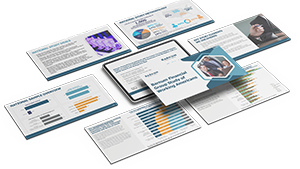
Financial anxiety is a pervasive and unsettling experience for countless individuals. It’s more than just occasional worry about bills. Many experience it as a persistent gnawing feeling of uncertainty and stress, manifesting as sleepless nights, social withdrawal, paralyzing helplessness, and intense feelings of insufficiency.
With looming uncertainties about the economy, finding ways to remain resilient through times of financial crisis or uncertainty is essential for your mental well-being.
Understanding Financial Anxiety
Identifying the Triggers
Knowledge is power, even in anxious moments. Identify what specific financial situations or thoughts trigger your anxiety. What sets you on edge? Is it checking your bank balance, paying bills, or thoughts about future expenses? Knowing your triggers is the first step toward stress management.
The Physical and Emotional Toll
Your stress response system activates every time you encounter financial triggers. It initiates a chain of physiological reactions that manifest as headaches from racing thoughts, negative thinking, nausea, stomach upset, restlessness, insomnia, emotional distress, high blood pressure, mental and physical fatigue, irritability, and difficulty concentrating.
Breaking the Cycle of Worry
Persistent and uncontrollable negative thinking fuels and sustains anxiety. It brings feelings of doom, a consequence of an overproduction of cortisol, a stress hormone. Fortunately, challenging this unfounded thought process is possible.
Rationalize thoughts with facts, emphasizing what you can control. Use negative thoughts as pointers to understand your biases, fears, and the subconscious. Avoid thought suppression. It creates a rebound effect, exacerbating the vicious cycle of negative thinking.
Taking Control of Your Finances
Knowledge is Power
Empower yourself through knowledge and understanding. Dive into personal finance. Gain insights into budgeting, saving, debt management, and investing. The greater your understanding, the more confidence you will have in making informed financial decisions.
Create a Budget and Stick to It
Building and sticking to a budget is fundamental for financial clarity. Monitor all income sources, from your salary to side hustles, gifts, or allowances, with detailed frequency. Categorize expenses as essential (rent, utilities, groceries) and non-essential (dining out, entertainment, subscriptions). Be transparent about impulse buys and hidden fees. Utilize budgeting tools and apps for a streamlined, accurate process.
Pay Down Debt
Debt can be a hulking source of financial anxiety. List all your debts, including credit cards, loans, and mortgages. Note the balances, interest rates, and minimum payments for each. Choose a suitable method to reduce your debt. You can prioritize paying off debts with the highest interest rates or focus on paying off the debts with the smallest balances. Each payment contributes to financial freedom, bringing you closer to a debt-free future.
Build an Emergency Fund
An emergency fund offers peace of mind because every penny saved is a step closer to financial security. It’s a financial cushion for unexpected expenses or when income streams run dry. Strive to save 3-6 months’ worth of living expenses, covering essentials like rent, utilities, groceries, transportation, and minimum debt payments.
Choose an easily accessible savings account separate from your daily spending. The account should have high interest rates to boost savings and minimal fees to avoid unnecessary charges. Ensure it also allows for easy transfers for convenient additions to your emergency fund.
Prioritizing Your Well-being
Practice Self-Care
Prioritize physical and mental health by consuming nutritious meals to support cell building and cognitive function. Regular exercise clears thoughts, enhances muscle strength, improves circulation, and activates motivation-inducing hormones. Get adequate rest to rejuvenate your body and mind. Adopt relaxation techniques like meditation, mindfulness, breathing exercises, and yoga to alleviate anxiety.
Seek Support
Anxiety flourishes in isolation, so resist the urge to stay alone with anxious thoughts. Reach out to someone you trust — therapists possess expertise in handling anxiety, and financial advisors can help unravel the causes. Confide in a trusted friend or family member. Remember, a shared problem is already half-solved.
Celebrate Your Progress
Acknowledge and celebrate your progress, regardless of its size. Every step taken toward financial security is a significant achievement worth recognizing.



